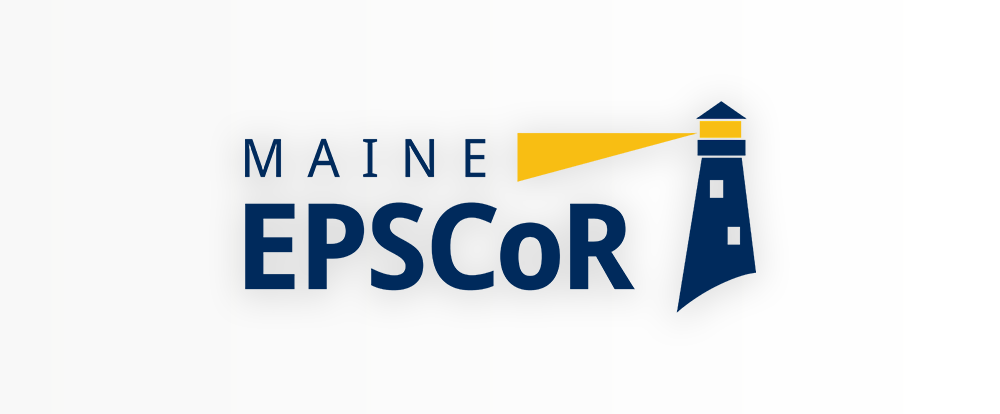
Where are They Now! Catching up with past Maine EPSCoR participants

Brianne Suldovsky, was a valuable member of the Maine EPSCoR research community during her graduate studies. Suldovsky completed her Ph.D. in communications from the University of Maine in 2016, where she simultaneously worked with the Maine EPSCoR office.
At Maine EPSCoR Suldovsky worked as a graduate research assistant on two projects, the Sustainability Solutions Initiative (SSI) and the New England Sustainability Consortium (NEST) Safe Beaches and the Shellfish Project. Suldovsky explained how she was once a climate skeptic and a young earth creationist. However, she has since made a career studying the public understanding of science and looking for ways to improve the relationship between science and society. Currently, Suldovsky works as an Assistant Professor of Science, Environment, and Risk Communication at Portland State University in Oregon.
Fondly, Suldovsky reminisced of her time working with Maine EPSCoR, emphasizing how the experience helped her in a multitude of ways. During her Ph.D. studies, she worked closely on a large interdisciplinary grant-funded team which made her feel prepared for her current position.
On account of her work with Maine EPSCoR, she felt ready to write and manage grants. Her confidence in working in large teams, and knowing what to expect when working across disciplines was bolstered throughout the duration of her time with Maine EPSCoR.
Suldovsky is dedicated to making her research impactful on society, as well as her own field. During her time working on EPSCoR projects, she gained experience balancing multiple demands,conducting research, attending conferences, and networking in ways that would not have been possible if it were not for the grant funding she received. She feels as though this work is a contributing factor to what made her a competitive candidate for a postdoc and tenure-track position.
She praises the wide range of people she met during her work with Maine EPSCoR. The skills she acquired during her work with EPSCoR have informed how she currently approaches all of her present research. For example, she feels as though she is able to successfully collaborate with experts outside of her own field and with non-academic stakeholder partners because this was a major part of her work with EPSCoR during her graduate studies.

Emily Taccardi, a recent graduate of the University of Maine, completed her Ph.D. in Marine Biology in August 2020. Taccardi studied as a graduate student at UMaine for five years, and was a fellow on the Sustainable Ecological Aquaculture Network (SEANET) grant through Maine EPSCoR. Her research included year-round fieldwork on salmon farms at the border of Maine and Canada.
Taccardi fondly recalls days in the field being exciting and, “full of adventure and team bonding.” She had the opportunity to learn from charismatic farmers while she worked on the boat. Through her research, she participated in a significant amount of fieldwork on the water and in various lab settings.
Currently, Taccardi works in the office of Senator Edward Markey as a Knaus Fellow for Sea Grant. Her work focuses on a variety of policy areas within the energy and environment portfolio. Through this position, Taccardi enjoys learning about and contributing to the federal legislative process.
During her graduate studies, Taccardi worked on a Maine EPSCoR Track-1 award that allowed her to network with a wide range of colleagues while gaining experience as one moving part of a large, interdisciplinary grant. The interdisciplinary approach fostered her growing interest in the human side of marine issues.
As a result of her experience with Maine EPSCoR, Taccardi decided to apply for her current fellowship in marine policy, with the aim to explore decision-making processes and the implementation of science. Her experience with Maine EPSCoR strengthened her communications surrounding science, networking, and facilitation skills, all of which have been critical in the positions that she has held since graduating from UMaine.

Thomas Fouchereaux of Yarmouth, Maine graduated from the University of Maine with a Bachelor of Arts in New Media. During his junior year at UMaine, Fouchereaux became a video editor at Maine EPSCoR and produced video content for the office in addition to handling his normal classwork and capstone requirements.
Currently, Fouchereaux works as a filmmaker, editor, and a photographer for the Jackson Laboratory, a nonprofit biomedical research institution, based out of Bar Harbor. He creates and produces externally and internally facing videos for the laboratory. With the new initiative the organization is pursuing, the majority of Fouchereaux’s time is spent making videos and commercials that further the understanding of their audience and stakeholders towards the crucial paradigm shift.
During the last two years of his undergraduate career, Fouchereaux contributed to a variety of Maine EPSCoR projects. Maine EPSCoR had interest in creating a video showcase requiring the team to follow up with researchers engaged on NSF grants for interviews about the work and the impacts they facilitated. Back in the editing room, Fouchereaux threaded a total of 16 projects together, forming a narrative that complemented the message that these initiatives were emerging epicenters of economic growth for the state. There were also stand-alone initiatives that needed videos to supplement the article. At one point, Fouchereaux animated the Maine EPSCoR logo for use in video and online publication.
Working with Maine EPSCoR was his first experience where he pitched his own work.
“The ability to use skills in video production to create a pilot representation of the product our team is aiming to fund has only become increasingly relevant as I further my career in video production,” he said. “Maine EPSCoR gave me a window into what this profession could expect on the corporate side of the spectrum, with regards to making pitches, managing production budgets, and editing on stringent deadlines.”
The most valuable piece of information Fouchereaux learned during his work with Maine EPSCoR was how to professionally handle criticism. He explained,”By presenting my work to multiple departments within EPSCoR I came to terms with my resistance towards accepting feedback. Everybody needs to be able to contribute what they feel are necessary changes, because in the end, it helps the entire team publish a better article.”

Cheyenne Adams is currently an aquaculture scientist with the Maine Department of Marine Resources (DMR) helping manage one of Maine’s largest natural resources. After finishing her undergraduate studies at the University of Southern Illinois, Adams came to Maine to work at the National Cold Water Marine Aquaculture Center, which led her to graduate work at UMaine.
Guided by her advisors Paul Rawson and Larry Mayer, Adams’ research took place at the intersection of marine biology and oceanography. Adams’ research focussed on whether detritus was a significant food source for oysters, and measuring the oysters’ response to changing oceanographic conditions.
Adams elaborated, “Being based at the Darling Marine Center for a lot of my graduate program really made me want to stay in Maine and do more fieldwork.” This love for Maine and the field led Adams to DRM where she started in the sea sampling program, a fieldwork-heavy program, working with lobster and scallop fisheries.
Three years into her time at DMR, Adams is working in the aquaculture program, inspecting new and current aquaculture sites for the department.
Not only does Adams’ experiences from SEANET fit perfectly with her work at DMR but so do the connections she made. The people and institutions Adams worked with during her time at SEANET continue to help her work in aquaculture and managing one of Maine’s greatest natural resources.
